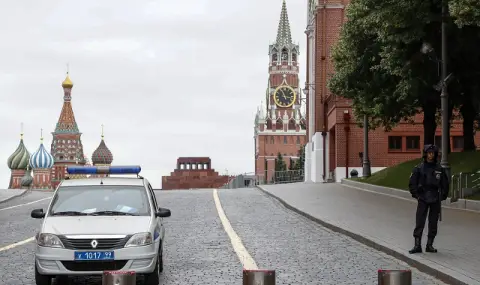The Kremlin is believed to have cut off internet access in some areas of Russia as it continues to build its own cyber network.
The Russian Federal Internet regulatory agency POKOMNADZOR has restricted global internet access for one day in several regions so that VPNs cannot bypass it, according to reports cited by Business Insider.
According to local news reports cited by the American think tank The Institute for the Study of War, POKOMNADZOR said tests for tight control of internet access in a Muslim-majority region in the southern part of the country of Dagestan.
The Dagestani news website Chernovik reported that people in the affected regions, including Chechnya and Ingushetia, were not able to access Facebook and YouTube, Amazon and Telegram, but only through virtual private networks, or VPNs, which they use encrypted, to bypass public internet platforms.
In a statement to "Kommersant" In November, the Russian Internet watchdog announced that the aim of the tests was to ensure that the Russian Internet, RuNet, could be cut off from the global Internet.
Russia has long sought to restrict the country's access to the Internet, with some websites, including global news outlets, inaccessible to ordinary users.
The Kremlin wants to control The flow of information available to Russians, including topics such as the war in Ukraine, is heavily censored.
Some citizens have used VPNs to bypass restrictions and access information and services on the global network. The VPN crisis has intensified since the Russian invasion of Ukraine, when strict internet restrictions were imposed, Business Insider reported in 2022.
ISW commented that the recent tests appear to have been focused on regions with a history of conflict with Moscow authorities.
"The regulator probably intended to test "The ability to successfully exclude Chechnya, Dagestan and Ingushetia - Russian federal entities with a Muslim majority and a history of instability - from services like Telegram, in order to control the information space in case of instability in the future," notes ISW.
The texts are probably part of a plan to more broadly restrict access to the global internet in Pythia.
